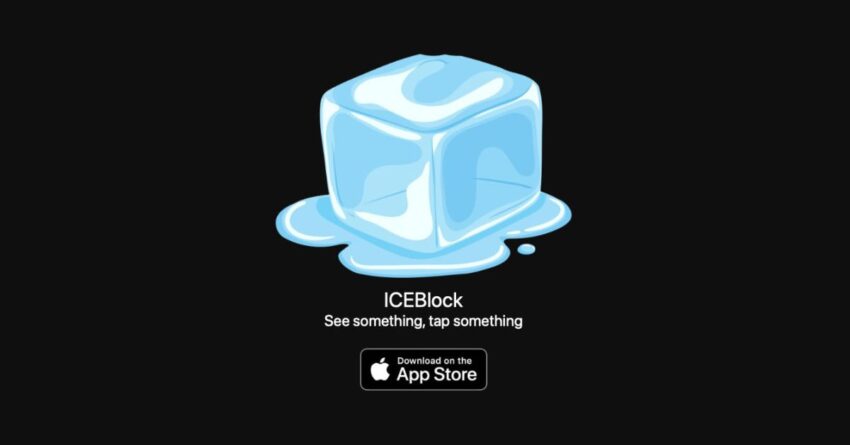
following doj pressure apple pulls iceblock from Apple has removed the ICEBlock app from its App Store following pressure from the U.S. Department of Justice (DOJ), a move that has sparked significant debate regarding the intersection of technology, immigration enforcement, and civil liberties.
following doj pressure apple pulls iceblock from
Background on ICEBlock
ICEBlock is an application designed to notify users about the presence of Immigration and Customs Enforcement (ICE) agents in their vicinity. The app aims to provide a layer of protection for undocumented immigrants and their families by alerting them to potential encounters with federal immigration authorities. Users can receive real-time alerts based on community reports, allowing them to take precautions if ICE agents are nearby.
The app gained traction among immigrant advocacy groups, who viewed it as a crucial tool in the ongoing struggle against aggressive immigration enforcement practices. By empowering individuals with information, ICEBlock sought to mitigate the fear and uncertainty that many undocumented immigrants face daily.
Government Pressure and Removal from the App Store
The decision to remove ICEBlock from the App Store came after U.S. Attorney General Pam Bondi expressed concerns regarding the app’s potential to obstruct law enforcement activities. In a statement, Bondi emphasized that while the rights of individuals to seek information are important, the app could inadvertently aid those evading the law, thereby complicating the work of federal agents.
In her remarks, Bondi stated, “While we respect the right to free speech and the dissemination of information, we cannot allow tools that may hinder law enforcement efforts to remain available.” This statement reflects a broader governmental stance that prioritizes immigration enforcement over the rights of individuals seeking to protect themselves from potential deportation.
Reactions from Stakeholders
Advocacy Groups
The removal of ICEBlock has drawn sharp criticism from various immigrant rights organizations. Many advocates argue that the app serves as a vital resource for communities that are disproportionately affected by immigration raids and enforcement actions. They contend that the app does not promote illegal activity but rather empowers individuals to make informed decisions about their safety.
Organizations such as the American Civil Liberties Union (ACLU) have condemned the decision, asserting that it undermines the rights of individuals to access information that could protect them from unjust treatment. The ACLU’s spokesperson noted, “This decision reflects a troubling trend where technology companies are pressured to silence tools that provide critical information to vulnerable communities.” Such sentiments echo a growing concern about the role of tech companies in facilitating or hindering civil liberties.
Public Opinion
Public reaction to the removal of ICEBlock has been mixed. Some individuals support the government’s stance, arguing that the app could potentially hinder law enforcement efforts and contribute to a culture of lawlessness. These supporters believe that immigration laws should be enforced without obstruction, and tools like ICEBlock could complicate those efforts.
Conversely, many members of the public, particularly those from immigrant communities, view the app as a necessary safeguard against aggressive immigration enforcement. They argue that the fear of deportation is a daily reality for many families and that access to information is crucial for their safety and well-being. This divide in public opinion highlights the complexities surrounding immigration policy and the role of technology in shaping these discussions.
Implications for Technology and Civil Liberties
The removal of ICEBlock raises important questions about the responsibilities of technology companies in relation to civil liberties and government pressure. As tech giants like Apple navigate the delicate balance between compliance with government requests and the protection of user rights, the implications of such decisions could have far-reaching effects.
One significant concern is the potential for a chilling effect on other apps and platforms that aim to provide information or services to marginalized communities. If companies perceive that they may face backlash or regulatory scrutiny for hosting certain types of content, they may become more cautious in their app approval processes. This could lead to a reduction in the availability of resources that empower vulnerable populations.
Legal Considerations
The legal landscape surrounding the removal of ICEBlock is also worth examining. While companies like Apple have the right to curate their app stores, the question of whether they should bow to government pressure raises ethical and legal dilemmas. The First Amendment protects free speech, but the application of this principle in the context of technology and digital platforms remains a contentious issue.
Legal experts suggest that the removal of ICEBlock could set a precedent for future actions by tech companies in response to government requests. If companies are seen as willing to comply with pressure to remove apps that serve marginalized communities, it could embolden further government actions against similar platforms. This could lead to a more restrictive environment for digital expression and access to information.
Future of ICEBlock and Similar Apps
Following the removal of ICEBlock, the future of the app remains uncertain. Developers may seek alternative platforms to distribute the app, or they may explore ways to reintroduce it with modifications that address the concerns raised by the DOJ. However, the challenges posed by government pressure and the potential for further scrutiny could hinder these efforts.
Moreover, the situation raises questions about the viability of similar apps aimed at protecting vulnerable communities. As the landscape of immigration enforcement continues to evolve, the need for accessible information remains critical. Developers and advocates may need to consider innovative approaches to ensure that individuals can access vital resources without facing the risk of removal from major app stores.
Conclusion
The removal of ICEBlock from the App Store highlights the complex interplay between technology, government regulation, and civil liberties. As Apple responds to pressure from the DOJ, the implications of this decision extend beyond a single app, raising critical questions about the responsibilities of tech companies in safeguarding user rights and the potential consequences of government intervention.
As discussions surrounding immigration enforcement and civil liberties continue to unfold, the fate of ICEBlock serves as a reminder of the challenges faced by marginalized communities in accessing information and resources. The ongoing debate will likely shape the future of technology and its role in supporting or hindering civil rights.
Source: Original report
Was this helpful?
Last Modified: October 3, 2025 at 8:57 pm
0 views















